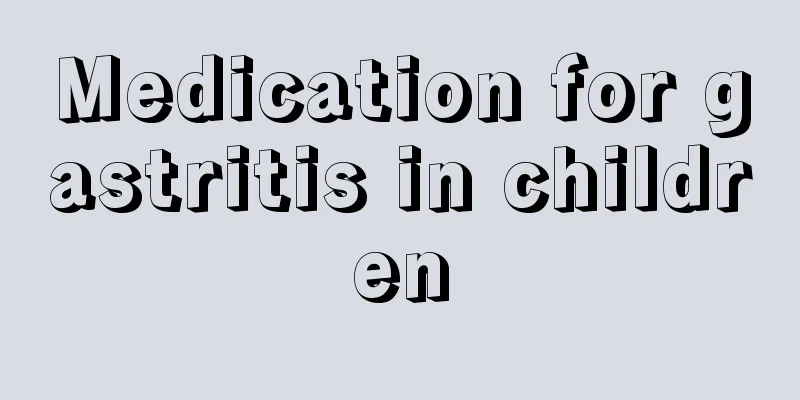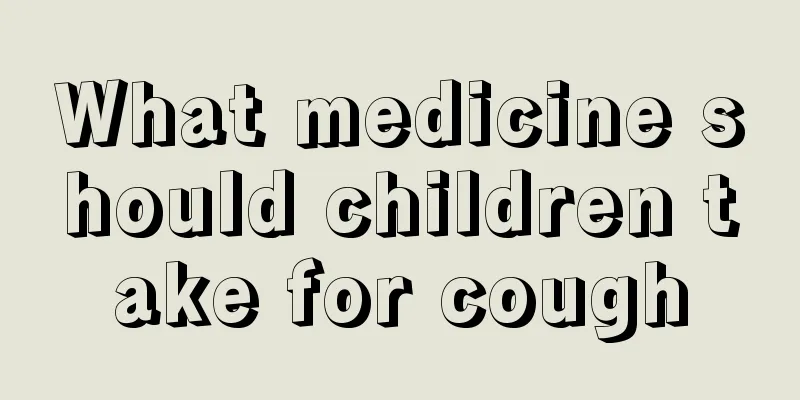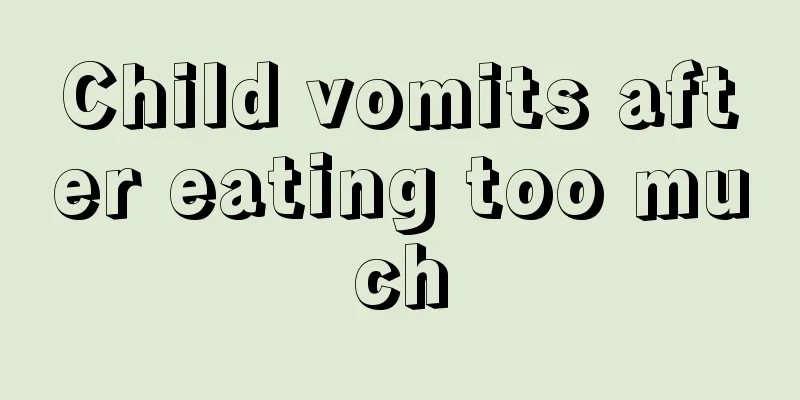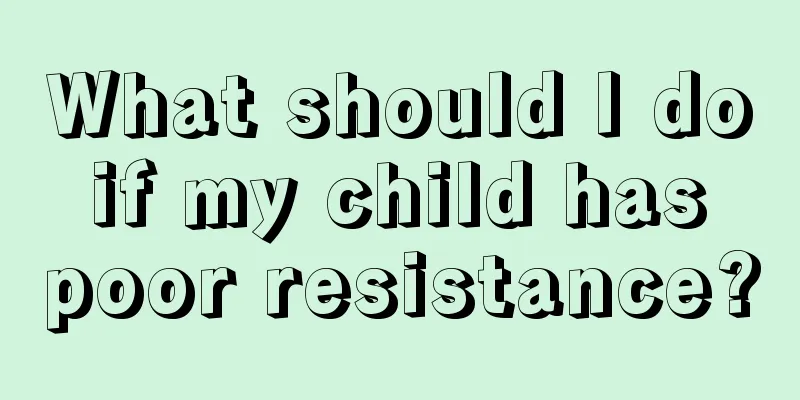Medication for gastritis in children

|
When their baby has some illness, parents will worry too much, because the baby's body is very fragile, the illness will damage the baby's health and cause the baby's developmental problems. However, due to improper feeding of babies by parents, or the coldness of the baby's stomach and intestines, gastritis may occur in the baby. At this time, parents are generally very worried. When a baby has gastritis, how should the medicine be used? Medicines for gastroenteritis in children Acute enteritis in children is a common disease in infants and young children under 2 years old (also known as infantile diarrhea). Its main symptom is diarrhea, which can be caused by improper diet and intra-intestinal or extra-intestinal infection. The most common intestinal infection is pathogenic Escherichia coli enteritis. Artificially fed babies are more likely to get sick than breastfed babies. The reason for this is not only that animal milk is easily contaminated, but also that breast milk contains a mucopolysaccharide that promotes the growth of bifidobacteria, which can inhibit the growth of Escherichia coli. In addition to bacillary dysentery, cholera, typhoid fever, etc., other bacterial, viral, parasitic, fungal and unexplained infectious diarrhea can be called enteritis. Children under 2 years old who develop epidemic diarrhea in the autumn and winter, with egg-drop soup-like or white watery stools and no pus or blood in the stools, are more likely to have rotavirus enteritis. If it occurs in the summer, Escherichia coli is more likely to be the cause of the disease. If the stool contains mucus, pus and blood, bacterial dysentery, Campylobacter jejuni or Salmonella typhimurium enteritis should be considered. (1) For mild diarrhea, patients should avoid indigestible foods and high-fat foods. Instead, they should drink rice soup, soy milk, yogurt or skim milk. Breastfeeding patients should shorten the feeding time. Children with severe diarrhea should be sent to the hospital for treatment as soon as possible. For mild diarrhea treated at home, oral rehydration salts (available in pharmacies) can be taken. Each packet should be mixed with 500 ml of water and taken in small amounts and multiple times. Generally, for mild dehydration, 50 ml per kilogram of body weight per day is appropriate; for moderate dehydration, 80-100 ml per kilogram of body weight per day is appropriate. After vomiting and diarrhea improve, gradually resume normal diet 3-4 days later. (2) If children have enteritis, it is best to do a stool test or culture to confirm the diagnosis if conditions permit. In case of Escherichia coli enteritis, polymyxin B can be used, 50,000-100,000 units per kilogram of body weight per day, divided into 3-4 doses; or kanamycin can be used, 50 mg per kilogram of body weight per day, taken orally in 3-4 doses. The course of treatment should not exceed 7 days to prevent dysbacteriosis. (3) Campylobacter jejuni enteritis can be treated with erythromycin ethylsuccinate, 30-50 mg per kilogram of body weight per day, divided into 3-4 doses. (4) Clotrimazole can be used for fungal enteritis, 20-60 mg per kilogram of body weight per day, orally in 3 divided doses. (5) For viral enteritis, if antibiotics are ineffective, the Chinese patent medicine Zhuodan Zhixie Ling can be used. For children aged 1-3 years, 5 ml each time, 3 times a day; for children aged 3-7 years, 10 ml each time, 3 times a day is the best treatment. How to treat gastroenteritis in children The treatment of gastroenteritis in children is mainly etiological treatment and symptomatic treatment, that is, what causes acute gastroenteritis and how to find out and eliminate the root cause in time. Whatever symptoms the child shows, try to eliminate these symptoms that are harmful to the body. If it is caused by indigestion, you can adjust your diet and take lactase, yeast tablets, etc.; if it is caused by other diseases in the body, you can choose antibiotics and use them under the guidance of a doctor; if it is caused by other diseases in the body, actively treat the disease; if it is caused by unreasonable use of antibiotics, you need to consult a doctor to rationalize the use of antibiotics. If a child loses too much water due to vomiting or diarrhea, he or she should be replenished with water and electrolytes in time. If the fever is high, physical or medicinal cooling should be used. If there is potassium deficiency, potassium should be supplemented, and if there is calcium deficiency, calcium should be supplemented. If there is metabolic acidosis or shock, the child should be sent to the hospital for emergency treatment in time. |
<<: Massage techniques for children with indigestion
>>: What are the iron supplements for children?
Recommend
What kind of facial mask is suitable for teenagers
In the process of growth and development, there a...
What to do if baby has ear eczema
When it comes to eczema, many people are familiar...
How to classify viral colds in children
It is common for children to catch colds and feve...
What to do if your child has precocious puberty?
Many young children have problems with precocious...
What causes acne on children's faces?
Soon after a baby is born, he or she will start t...
How to correct a child's hunchback?
When families see that their children cannot walk...
What should I do if my baby coughs and has phlegm?
When their children have a cough, parents are par...
What causes knee pain in children?
Knee pain is a common symptom among the elderly, ...
Tips to relieve baby's stuffy nose
When the baby's nose is blocked, it will be d...
What to do with myopia in children? Several common treatment methods
Parents of today's children usually do not pa...
What to do if your child has convulsions during a fever
When a child has a fever, if the body temperature...
Why does a 5-year-old child have knee pain?
During the growth process of a child, different s...
What to do if your child has swollen lymph nodes in his abdomen
Swollen lymph nodes is an immune disease that occ...
What to do if your two-year-old baby hits people
Babies are very curious and are willing to imitat...
Why is my eight-month-old baby's stool black?
Nowadays, many parents are very concerned about s...









